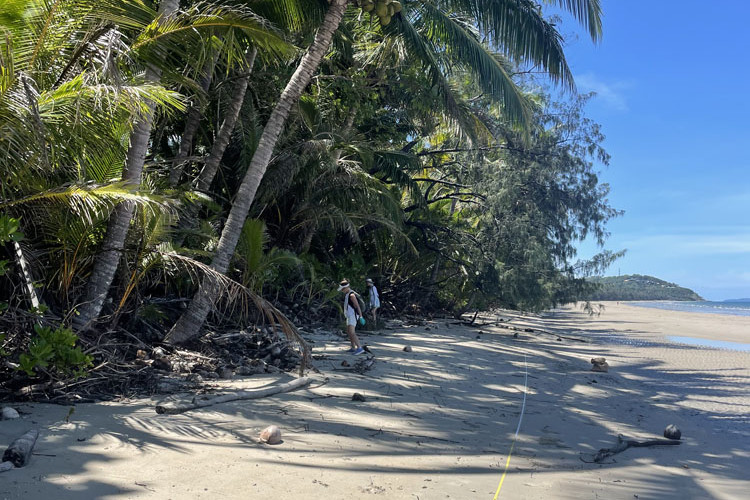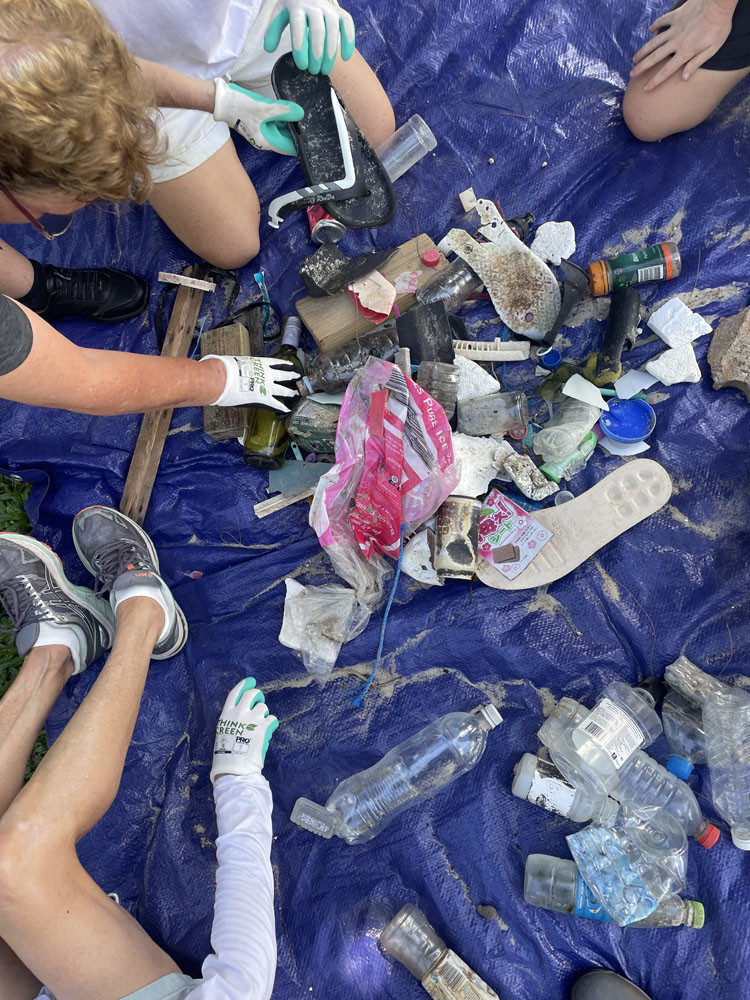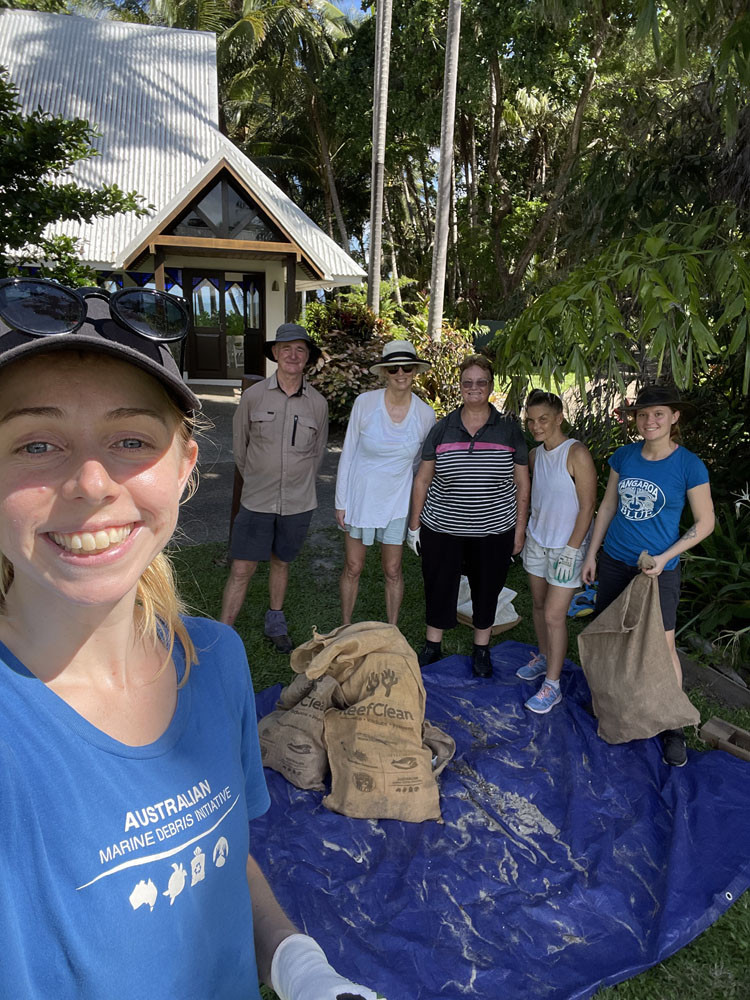Community
13 February, 2024
Four Mile Beach shore cleaned up
'Gazza's Gossip' "I often see images online, or on the TV, of seas around the world littered with different types of rubbish. It may be easy to assume that this is happening somewhere else and not in our idyllic paradise."

It may well be true that our own waters are comparatively clean, but in reality, they are probably not as sparkling as you may think and the extent of the modern world’s human impact is far worse than appears to the eye.
While an estimated 40,000 pieces of plastic float in every square kilometre of ocean, it is only when it washes ashore that most people get an idea of how much rubbish must actually be out in our oceans and the effects that this has on marine life and seabirds.
As horrible as beach rubbish is, and looks, it does present the best opportunity to remove it from the environment before the next tide washes it back out to sea again.
Fortunately, there is help at hand, both in terms of a national organisation and, as is often the case, locally-based volunteers.
Let’s start with the former, this being the Tangaroa Blue Foundation. This is an Australian-registered charity focused on the health of our marine environment and coordinates the Australian Marine Debris Initiative (AMDI). The organisation also coordinates an on-ground network of volunteers, communities, organisations and agencies around the country monitoring the impacts of marine debris along their stretch of coastline.
The AMDI Database is used to firstly identify what is impacting different sections of the coast and then to track wherever possible where those items are coming from. Lastly, stakeholders are then brought together to work on practical solutions and create source reduction plans to stop marine debris from entering our oceans in the first place. The database has open access to all contributors who are also recognised when data is used and has been used by the CSIRO, James Cook University, all levels of government and communities.
As mentioned, volunteers, organisations and communities from around the country are invited to join forces in the Australian Marine Debris Initiative to find practical solutions in reducing ocean pollution.
That’s where our local volunteers kick into action, cleaning up areas like Four Mile Beach in Port Douglas. In fact, this location is one of the longest-running Queensland beach monitoring sites. Locals have been cleaning and collecting data from this site each month for the past 12 years.
Since the program started in 2004, more than 23 million pieces of marine debris have been removed from the Australian coastline and data on this debris collated and input into the Australian Marine Debris Initiative Database.
Last week, I caught up with some busy rubbish collectors, working hard to ensure a cleaner Four Mile Beach now and a brighter future for our environment.
If you are keen on helping in the future, you can contact Lucy for more details by emailing: lucy@tangaroablue.org
I’m off for a walk along the debris-free sands of Four Mile Beach, so for now it’s Gazza signing out.
Send your stories to gazza@cairnslocalnews.com.au




